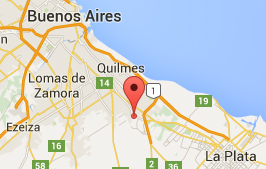
UNAJ – Universidad Nacional Arturo Jauretche [National University Arturo Jauretche] began to write its history in December 2009, when the Argentine National Congress enacted the Law 26.576 for its creation its
Located in Florencio Varela, Province of Buenos Aires, in the south of the metropolitan area of the city of Buenos Aires, UNAJ is public higher education institution focused on contributing to solve specific and complex problems of its territory. A core mission of UNAJ is to contribute to social transformation as well as to guarantee access to quality education as a fundamental human right.
Since its creation, UNAJ implemented an education offer focused on local and national development needs, based on democratic values, the right to education for all, interdisciplinary work and a strong commitment with its community.
Currently, UNAJ have a vibrant community with more than 30,000students, 1,600 teaching staff and 300 support staff. The University is structured in four institutes: Health Sciences; Engineering and Agronomy; Social Sciences and Administration; offering26 undergraduate and 16 postgraduate programs.
Internationalization is a key priority for UNAJ. Since its creation, and in addition to the traditional partners of Argentinian university cooperation, such as France, Germany, Spain and USA, UNAJ has also developed robust links with higher education institutions in Latin America, Asia and Central Europe.
Mission
UNAJ mission is focused on contributing to sustainable regional development (economic, social, cultural and ecological), through the production and democratization of knowledge and scientific and technological innovations. UNAJ is actively engaged in improving the quality of life of its community, supporting the right to higher education, strengthening democratic values and promoting equality.
UNAJ is committed to academic quality with social inclusion promoting critical thinking for social transformation, through the interlinkage of teaching, research, development and innovation with community and territorial needs.


